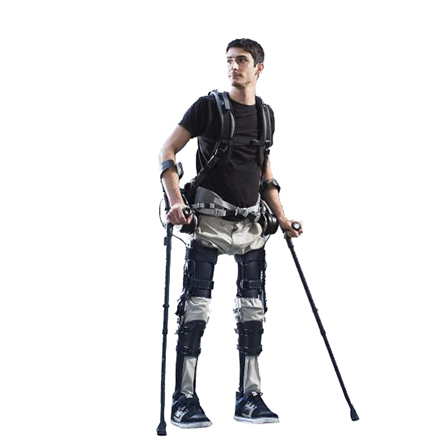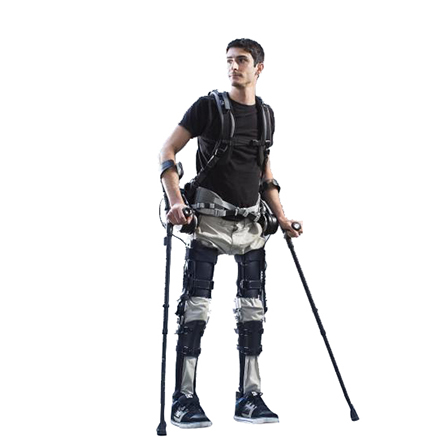Innovation of the week: A robotic exoskeleton to help paraplegics walk
It's lighter and far more affordable than similar devices

A free daily email with the biggest news stories of the day – and the best features from TheWeek.com
You are now subscribed
Your newsletter sign-up was successful
A robotic exoskeleton will get paraplegics up and walking — at a relatively budget price, said Mark Wilson in Fast Company. The Phoenix is a 27-pound mechanical frame created by Berkeley, California–based SuitX that's lighter and far more affordable than similar devices. The secret is its "spartan design," which focuses entirely on helping the wearer walk.

More sophisticated exoskeletons are loaded with powerful motors that allow wearers to replicate a wide range of movements, like running or jumping. The Phoenix's only motors are at the hip joints, which swing forward in succession while "the onboard computer signals the knee to become loose, flex, and clear the ground." Wearing the Phoenix, someone normally bound to a wheelchair can sit, stand, and walk on a level grade at 1.1 miles per hour. It goes on sale next month for $40,000, two to four times less than competitors' models.
A free daily email with the biggest news stories of the day – and the best features from TheWeek.com
The Week
Escape your echo chamber. Get the facts behind the news, plus analysis from multiple perspectives.

Sign up for The Week's Free Newsletters
From our morning news briefing to a weekly Good News Newsletter, get the best of The Week delivered directly to your inbox.
From our morning news briefing to a weekly Good News Newsletter, get the best of The Week delivered directly to your inbox.
-
 Will increasing tensions with Iran boil over into war?
Will increasing tensions with Iran boil over into war?Today’s Big Question President Donald Trump has recently been threatening the country
-
 Corruption: The spy sheikh and the president
Corruption: The spy sheikh and the presidentFeature Trump is at the center of another scandal
-
 Putin’s shadow war
Putin’s shadow warFeature The Kremlin is waging a campaign of sabotage and subversion against Ukraine’s allies in the West